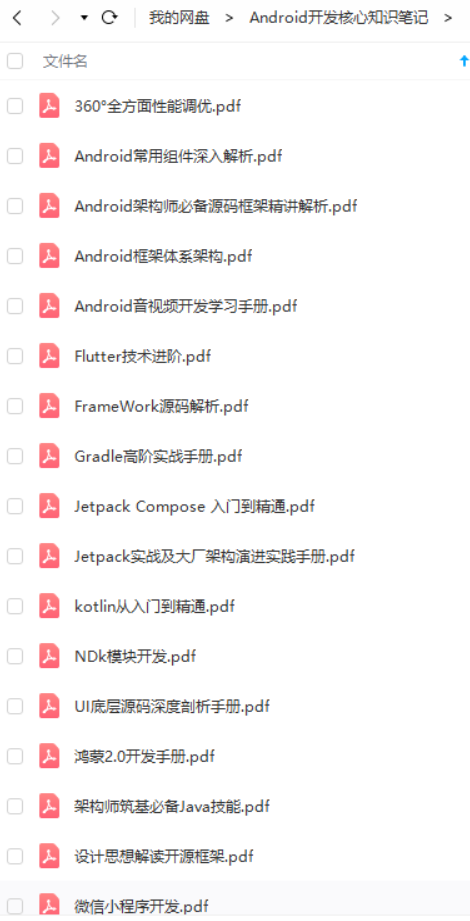android:textStyle=“bold” />
<TextView
android:id=“@+id/tv_temperature”
android:layout_width=“wrap_content”
android:layout_height=“wrap_content”
android:layout_below=“@+id/tv_week”
android:text=“温度”
android:textColor=“@color/white”
android:textSize=“@dimen/sp_48” />
<TextView
android:id=“@+id/tv_weather_state”
android:layout_width=“wrap_content”
android:layout_height=“wrap_content”
android:layout_below=“@+id/tv_temperature”
android:text=“天气”
android:textColor=“@color/white”
android:textSize=“@dimen/sp_20”
android:typeface=“monospace” />
<ImageView
android:id=“@+id/iv_weather_state”
android:layout_width=“@dimen/dp_80”
android:layout_height=“@dimen/dp_80”
android:layout_alignParentRight=“true”
android:src=“@mipmap/icon_100” />
<TextView
android:id=“@+id/tv_precipitation”
android:layout_width=“wrap_content”
android:layout_height=“wrap_content”
android:layout_below=“@+id/iv_weather_state”
android:layout_alignParentRight=“true”
android:layout_marginTop=“@dimen/dp_10”
android:drawableLeft=“@mipmap/icon_weather_prec”
android:drawablePadding=“4dp”
android:text=“降水预告”
android:textColor=“@color/white”
android:textSize=“@dimen/sp_12” />
<TextView
android:id=“@+id/tv_temp_difference”
android:layout_width=“wrap_content”
android:layout_height=“wrap_content”
android:layout_below=“@+id/tv_weather_state”
android:layout_marginTop=“@dimen/dp_100”
android:text=“温差提示”
android:textColor=“@color/white”
android:textSize=“@dimen/sp_18”
android:typeface=“monospace” />
<com.google.android.material.checkbox.MaterialCheckBox
android:id=“@+id/cb_no_pop_up”
android:layout_width=“wrap_content”
android:layout_height=“wrap_content”
android:layout_alignParentBottom=“true”
android:layout_centerHorizontal=“true”
android:text=“不再弹出”
android:textSize=“@dimen/sp_16”
app:useMaterialThemeColors=“true”
app:buttonTint=“@color/gray”
android:textColor=“@color/gray” />
<View
android:layout_centerHorizontal=“true”
android:layout_below=“@+id/iv_dialog_bg”
android:background=“@color/white”
android:layout_width=“@dimen/dp_1”
android:layout_height=“@dimen/dp_12”/>
<ImageView
android:id=“@+id/iv_close”
android:layout_width=“@dimen/dp_24”
android:layout_height=“@dimen/dp_24”
android:layout_below=“@+id/iv_dialog_bg”
android:layout_centerHorizontal=“true”
android:layout_marginTop=“@dimen/dp_12”
android:src=“@mipmap/icon_close_dialog” />
预览图如下所示(里面的图标没有的话可以去我的源码里面下载,或者自行下载一个,因为是白色的所示我贴了也看不见,CSDN中,不开会员的人无法修改文章的主题颜色,免费的主题,改不了博文的颜色,这一点我觉得很坑,非要你开个会员,吃相太难看了)

这里面用到了一个style,在app的styles.xml中增加如下代码:
在drawable下新建一个shape_dialog_foreground_bg_12.xml文件,代码如下:
<?xml version="1.0" encoding="utf-8"?>在app的colors.xml中新增一个颜色
#20000000
布局有了,那么就是先改变背景,再增加数据。
下面进入到MainActivity中,将检查版本更新的方法移动一个位置

因为自动更新的弹窗也是在每日第一次才弹出,所以公用,不过也要修改一下checkAppVersion里面的逻辑才行。修改后代码如下:
/**
- 检查APP版本
*/
private void checkAppVersion() {
AppVersion appVersion = LitePal.find(AppVersion.class, 1);//读取第一条数据
Log.d(“appVersion”, new Gson().toJson(appVersion.getVersionShort()));
if (AppStartUpUtils.isTodayFirstStartApp(context)) {//今天第一次打开APP
if (!appVersion.getVersionShort().equals(APKVersionInfoUtils.getVerName(context))) {//提示更新
//更新提示弹窗
showUpdateAppDialog(appVersion.getInstall_url(), appVersion.getChangelog());
}
//设置每日提示弹窗
setTipDialog();
}
}
之前是判断可不可以更新,再判断是否为第一次,现在判断是否为第一次打开。
然后下面的重点就是这个setTipDialog方法了
/**
- 设置每日弹窗
*/
private void setTipDialog() {
boolean isShow = SPUtils.getBoolean(Constant.EVERYDAY_POP_BOOLEAN, true, context);
if (isShow) {
new Handler().postDelayed(new Runnable() {
@Override
public void run() {
//当所有数据加载完成之后显示弹窗
if (everyDayTipDialog != null) {
return;
}
//弹出每日提醒弹窗
showEveryDayTipDialog();
}
},1000);
}
}
这里用到那么那个系统变量,判断是否可以弹窗这个弹窗,然后延时弹出。
/**
- 每日提示弹窗
*/
private void showEveryDayTipDialog() {
AlertDialog.Builder builder = new AlertDialog.Builder(context)
.addDefaultAnimation()//默认弹窗动画
.setCancelable(false)
.setText(R.id.tv_week, DateUtils.getWeekOfDate(new Date()))//星期
.setText(R.id.tv_weather_state, dialogWeatherState)//天气状态
.setText(R.id.tv_precipitation, dialogPrecipitation)//降水预告
.setText(R.id.tv_temp_difference,
WeatherUtil.differenceTempTip(dialogTempHeight, dialogTempLow))//温差提示信息
.setContentView(R.layout.dialog_everyday_tip)//载入布局文件
.setWidthAndHeight(SizeUtils.dp2px(context, 270), ViewGroup.LayoutParams.WRAP_CONTENT)//设置弹窗宽高
.setOnClickListener(R.id.iv_close, v -> {//关闭
everyDayTipDialog.dismiss();
});
everyDayTipDialog = builder.create();
String imgUrl = SPUtils.getString(Constant.EVERYDAY_TIP_IMG, “”, context);
ShapeableImageView bg = everyDayTipDialog.getView(R.id.iv_dialog_bg);
Glide.with(context).load(imgUrl).into(bg);
//温度
Typeface typeface = Typeface.createFromAsset(getAssets(), “fonts/Roboto-Light.ttf”);
TextView temp = everyDayTipDialog.getView(R.id.tv_temperature);
temp.setTypeface(typeface);
temp.setText(dialogTemp + “℃”);
//设置天气状态图标
ImageView weatherStateIcon = everyDayTipDialog.getView(R.id.iv_weather_state);
WeatherUtil.changeIcon(weatherStateIcon, dialogWeatherStateCode);
//不再弹出
MaterialCheckBox cb = everyDayTipDialog.getView(R.id.cb_no_pop_up);
cb.setOnCheckedChangeListener(new CompoundButton.OnCheckedChangeListener() {
@Override
public void onCheckedChanged(CompoundButton buttonView, boolean isChecked) {
if (isChecked) {
SPUtils.putBoolean(Constant.EVERYDAY_POP_BOOLEAN, false, context);
} else {
SPUtils.putBoolean(Constant.EVERYDAY_POP_BOOLEAN, true, context);
}
}
});
everyDayTipDialog.show();
}
这里面的代码就是先显示一些要的数据,通过缓存拿到必应的url设置背景,然后在弹窗的底部有一个选中框,选中后再关闭这个弹窗,那么这个弹窗以后都不会再弹出了,除非你再应用设置中进行打开。
到这一步,弹窗就出现了。
既然是增加用户的体验,那么自然要让用户可以自行控制,于是,我在新增了一个应用设置页面。在ui包下新建一个Empty Activity。命名为SettingActivity。它的xml布局如下:
<?xml version="1.0" encoding="utf-8"?><LinearLayout xmlns:android=“http://schemas.android.com/apk/res/android”
xmlns:app=“http://schemas.android.com/apk/res-auto”
xmlns:tools=“http://schemas.android.com/tools”
android:orientation=“vertical”
android:fitsSystemWindows=“true”
android:background=“@color/gray_white”
android:layout_width=“match_parent”
android:layout_height=“match_parent”
tools:context=“.ui.SettingActivity”>
<androidx.appcompat.widget.Toolbar
android:id=“@+id/toolbar”
android:layout_width=“match_parent”
android:layout_height=“?attr/actionBarSize”
android:background=“@color/white”
app:contentInsetLeft=“@dimen/dp_16”
android:elevation=“@dimen/dp_10”
app:layout_constraintEnd_toEndOf=“parent”
app:layout_scrollFlags=“scroll|enterAlways”
app:navigationIcon=“@mipmap/icon_return”
app:popupTheme=“@style/ThemeOverlay.AppCompat.Light”>
<TextView
android:layout_width=“wrap_content”
android:layout_height=“wrap_content”
android:layout_gravity=“center”
android:text=“应用设置”
android:textColor=“@color/black”
android:textSize=“@dimen/sp_18” />
</androidx.appcompat.widget.Toolbar>
<LinearLayout
android:layout_marginTop=“@dimen/dp_12”
android:background=“@color/white”
android:paddingLeft=“@dimen/dp_16”
android:paddingRight=“@dimen/dp_16”
android:paddingTop=“@dimen/dp_8”
android:paddingBottom=“@dimen/dp_8”
android:gravity=“center_vertical”
android:orientation=“horizontal”
android:layout_width=“match_parent”
android:layout_height=“wrap_content”>
<TextView
android:text=“每日弹窗”
android:textColor=“@color/black”
android:textSize=“@dimen/sp_16”
android:layout_width=“0dp”
android:layout_weight=“1”
android:layout_height=“wrap_content”/>
<com.llw.mvplibrary.view.SwitchButton
android:id=“@+id/wb_everyday”
android:layout_width=“wrap_content”
android:layout_height=“wrap_content”/>
整体来看这个页面目前只有一个管理每日弹窗的功能,有些孤独,不过后续我可能会加入其他的一些功能,敬请期待。
下面进入SettingActivity。里面的代码如下:
package com.llw.goodweather.ui;
import android.os.Bundle;
import androidx.appcompat.widget.Toolbar;
import com.llw.goodweather.R;
import com.llw.goodweather.utils.Constant;
import com.llw.goodweather.utils.SPUtils;
import com.llw.goodweather.utils.StatusBarUtil;
import com.llw.mvplibrary.base.BaseActivity;
import com.llw.mvplibrary.view.SwitchButton;
import org.litepal.util.Const;
import butterknife.BindView;
import butterknife.ButterKnife;
/**
-
应用设置页面
-
@author llw
*/
public class SettingActivity extends BaseActivity {
@BindView(R.id.toolbar)
Toolbar toolbar;
@BindView(R.id.wb_everyday)
SwitchButton wbEveryday;
@Override
public void initData(Bundle savedInstanceState) {
//白色状态栏
StatusBarUtil.setStatusBarColor(context, R.color.white);
//黑色字体
StatusBarUtil.StatusBarLightMode(context);
Back(toolbar);
boolean isChecked = SPUtils.getBoolean(Constant.EVERYDAY_POP_BOOLEAN,true,context);
wbEveryday.setChecked(isChecked);
wbEveryday.setOnCheckedChangeListener(new SwitchButton.OnCheckedChangeListener() {
@Override
public void onCheckedChanged(SwitchButton view, boolean isChecked) {
if(isChecked){
SPUtils.putBoolean(Constant.EVERYDAY_POP_BOOLEAN,true,context);
}else {
SPUtils.putBoolean(Constant.EVERYDAY_POP_BOOLEAN,false,context);
}
}
});
}
@Override
public int getLayoutId() {
自我介绍一下,小编13年上海交大毕业,曾经在小公司待过,也去过华为、OPPO等大厂,18年进入阿里一直到现在。
深知大多数初中级Android工程师,想要提升技能,往往是自己摸索成长或者是报班学习,但对于培训机构动则近万的学费,着实压力不小。自己不成体系的自学效果低效又漫长,而且极易碰到天花板技术停滞不前!
因此收集整理了一份《2024年Android移动开发全套学习资料》,初衷也很简单,就是希望能够帮助到想自学提升又不知道该从何学起的朋友,同时减轻大家的负担。





既有适合小白学习的零基础资料,也有适合3年以上经验的小伙伴深入学习提升的进阶课程,基本涵盖了95%以上Android开发知识点,真正体系化!
由于文件比较大,这里只是将部分目录截图出来,每个节点里面都包含大厂面经、学习笔记、源码讲义、实战项目、讲解视频,并且会持续更新!
如果你觉得这些内容对你有帮助,可以扫码获取!!(备注:Android)

面试复习笔记
这份资料我从春招开始,就会将各博客、论坛。网站上等优质的Android开发中高级面试题收集起来,然后全网寻找最优的解答方案。每一道面试题都是百分百的大厂面经真题+最优解答。包知识脉络 + 诸多细节。
节省大家在网上搜索资料的时间来学习,也可以分享给身边好友一起学习。
《960页Android开发笔记》

《1307页Android开发面试宝典》
包含了腾讯、百度、小米、阿里、乐视、美团、58、猎豹、360、新浪、搜狐等一线互联网公司面试被问到的题目。熟悉本文中列出的知识点会大大增加通过前两轮技术面试的几率。

《507页Android开发相关源码解析》
只要是程序员,不管是Java还是Android,如果不去阅读源码,只看API文档,那就只是停留于皮毛,这对我们知识体系的建立和完备以及实战技术的提升都是不利的。
真正最能锻炼能力的便是直接去阅读源码,不仅限于阅读各大系统源码,还包括各种优秀的开源库。

《互联网大厂面试真题解析、进阶开发核心学习笔记、全套讲解视频、实战项目源码讲义》点击传送门即可获取!
)**

面试复习笔记
这份资料我从春招开始,就会将各博客、论坛。网站上等优质的Android开发中高级面试题收集起来,然后全网寻找最优的解答方案。每一道面试题都是百分百的大厂面经真题+最优解答。包知识脉络 + 诸多细节。
节省大家在网上搜索资料的时间来学习,也可以分享给身边好友一起学习。
《960页Android开发笔记》
[外链图片转存中…(img-oBJJriEr-1712624206630)]
《1307页Android开发面试宝典》
包含了腾讯、百度、小米、阿里、乐视、美团、58、猎豹、360、新浪、搜狐等一线互联网公司面试被问到的题目。熟悉本文中列出的知识点会大大增加通过前两轮技术面试的几率。
[外链图片转存中…(img-wAzxZ6HD-1712624206630)]
《507页Android开发相关源码解析》
只要是程序员,不管是Java还是Android,如果不去阅读源码,只看API文档,那就只是停留于皮毛,这对我们知识体系的建立和完备以及实战技术的提升都是不利的。
真正最能锻炼能力的便是直接去阅读源码,不仅限于阅读各大系统源码,还包括各种优秀的开源库。
[外链图片转存中…(img-7LvFHqjh-1712624206630)]
《互联网大厂面试真题解析、进阶开发核心学习笔记、全套讲解视频、实战项目源码讲义》点击传送门即可获取!








 文章介绍了如何在Android应用中实现每日弹窗提示,包括设置检查版本更新、弹出对话框的设计、使用Glide加载背景图片、用户自定义设置每日弹窗的开关,以及创建一个应用设置页面进行相关设置。
文章介绍了如何在Android应用中实现每日弹窗提示,包括设置检查版本更新、弹出对话框的设计、使用Glide加载背景图片、用户自定义设置每日弹窗的开关,以及创建一个应用设置页面进行相关设置。
















 62
62

 被折叠的 条评论
为什么被折叠?
被折叠的 条评论
为什么被折叠?








